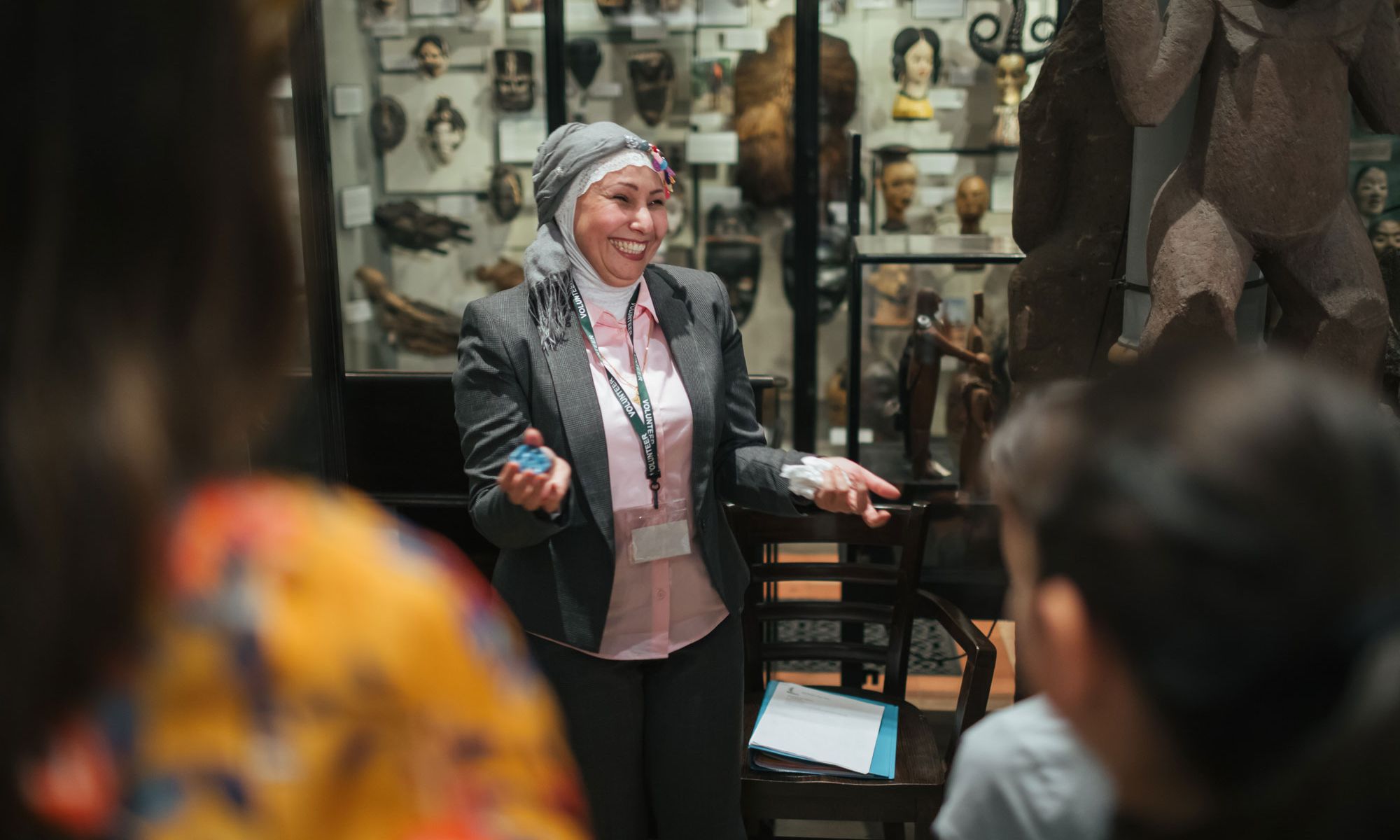A volunteer-led Multaka tour at the Pitt Rivers Museum in Oxford © University of Oxford/Ian Wallman
More than 200 refugees and asylum seekers will be trained as tour guides at two Oxford University museums over the next five years in an extension of the award-winning Multaka project first launched in Berlin. Running since 2017 at the Pitt Rivers Museum and the History of Science Museum, Multaka-Oxford will continue thanks to a £1m donation from the Saudi foundation Alwaleed Philanthropies.
The new Oxford programme was announced this week at a ceremony attended by the Saudi princess Lamia bint Majed Saud Al Saud, the Riyadh-based foundation’s secretary general, and the vice-chancellor of the University of Oxford, Louise Richardson. Backed by the billionaire Saudi investor Prince Alwaleed Bin Talal, Alwaleed Philanthropies has previously funded Multaka tours and gallery renovations at Berlin’s Museum of Islamic Art and the Musée du Louvre in Paris.
Meaning “meeting point” in Arabic, Multaka was initiated by Berlin State Museums and the Deutsches Historisches Museum in 2015 to train Syrian and Iraqi migrants to lead museum tours in Arabic for their peers—developing their skills and fostering greater understanding of Islamic culture.
Inspired by the concept, the Oxford museums partnered with local refugee community organisations to launch their own version of the project. To date, this has supported nearly 100 volunteer guides from countries including Syria, Egypt, Iraq, Zimbabwe and Sudan to interpret and co-curate collections at the History of Science Museum and Pitt Rivers Museum, focusing on objects from the Islamic world. Initial project funding came from the Esmée Fairbairn Collections Fund, administered by the UK Museums Association.
According to a press statement, the extended project will enable a new team of volunteers from across Oxfordshire to deliver museum tours in Arabic and English, object handling sessions and co-curated displays and events online and in person. Organisers will also establish a UK Multaka network in the coming years that aims to support the development of similar projects at other museums.
“This programme, which opens its arms to refugees and helps to integrate them into the local community through the power of art and culture, plays a powerful role in strengthening cross-cultural understanding in society,” says Princess Lamia of Alwaleed Philanthropies. “Islamic art tells a story of our heritage, which can be often misunderstood; the Multaka-Oxford programme bridges these gaps and brings museum collections to life.”

